Aditi Phadnis in New Delhi
On a cool November day last year, Commerce Minister Anand Sharma got the news that West Bengal Chief Minister Mamata Banerjee would be available in Delhi's Pragati Maidan, where the annual trade fair was going on.
Sharma was advised that it was an opportunity too precious to overlook: Banerjee would be a captive audience as she was going to be watching a cultural show; so he should seize the chance, drive down there and brief her on the development that 51 per cent FDI (foreign direct investment) in multi-brand retail would bring in.
Sharma did exactly that. Visitors to the function saw him sitting next to Banerjee, talking earnestly for nearly 90 minutes. Eyewitnesses also noted that Banerjee did not even turn to look at him. She just pretended he didn't exist and stared into the middle distance the entire time.
"We could see that he was talking. But it didn't look as if she was listening," recalls a visitor. So when Sharma told a Cabinet meeting that he had spoken to Banerjee thrice - twice personally and once on the phone - he was not being inaccurate.
...
The knight in veshti who made India's big ticket reforms possible
Image: President Pranab Mukherjee.Photographs: Reuters.
The cabinet meeting on FDI in retail followed later in the year. Finance Minister Pranab Mukherjee and Sharma attempted to move a note seeking the cabinet's approval to open up the sector.
Dinesh Trivedi, then railways minister, said he could not be party to the move as his leader, Banerjee, was opposed to it. Sharma said that he had spoken to Banerjee thrice.
Trivedi said that that may be so but "my leader is still opposed to it".
Mukherjee said that he - Trivedi - was just a first-time MP, indicating he should leave the running of the government to others. Trivedi said: "I'm not your student and you're not my headmaster. I am an elected MP and a minister of a separate political party."
As senior Congress leader A K Antony opposed the move as well, the decision was kept in suspension.
Mukherjee subsequently told the Lok Sabha that further consultations with stakeholders would follow to create a consensus.
...
The knight in veshti who made India's big ticket reforms possible
Image: Finance Minister P Chidambaram.Photographs: Reuters.
Last week, in one day, the cabinet decided to open not just multi-brand retail to foreign investment but also civil aviation, power and the media. What has changed between then and now, since the stakeholders are the same and the naysayers, too, are exactly the same?
The answer is that Palaniappan Chidambaram has replaced Mukherjee as the finance minister.
The story of how the government bit the bullet and "unleashed animal spirits" doesn't begin after the Monsoon session of Parliament.
It actually begins earlier. In September 2011, a note (released by the prime minister's office in reply to an RTI request) originally prepared by the finance ministry and "seen" but not signed by Mukherjee, raised questions about whether Chidambaram, when he was the finance minister (2004 to 2008), missed a chance to stop a controversial allotment of telecom spectrum in early 2008.
| OTHERS IN THE CAST |
| Mulayam Singh Yadav Samajwadi Party chief The chameleon of Indian politics, this nominal Socialist is agile at shifting loyalties. He jumped from being Mamata's partner in crime in the Presidential elections to able lieutenant in the twinkling of an eye Mukul Roy Trinamool Congress leader The man who became the message, Roy has lost the most – a cabinet ministership Mayawati Bahujan Samaj Party chief She doesn't want an early election, but knows that if she gets too close to the Congress, her base might return to it Mamata Banerjee West Bengal Chief Minister The enfant terrible of Indian politics, her luck ran out. From win-win, she swiftly slid to lose-lose A K Antony Congress leader, Defence Minister Cut from Socialist cloth, Antony knows he has to be more Left than the Left, because the Congress-led government in Kerala is ahead of the left Front opposition by a wafer-thin majority Ahmad Patel Sonia Gandhi's political advisor The man for all seasons, Congress President Sonia Gandhi's political advisor was one of the first ones to start making contingency plans to make good the hole in the government caused by TMC |
...
The knight in veshti who made India's big ticket reforms possible
Image: Prime Minister Manmohan Singh.Photographs: Reuters.
Those who have deposed before the Joint Parliamentary Committee probing the matter say there isn't a speck of evidence to suggest wrongdoing by Chidambaram.
But the note led to a huge row between Mukherjee and Chidambaram (then home minister), ending with a public clarification by Mukherjee. Janata Party leader Subramaniam Swamy pursued the matter - and Chidambaram - to the Supreme Court. The highest court in the land threw Swamy's arguments out.
Mukherjee wasn't looking for an opportunity to get even, but he got one any way. The 2012-13 Budget saw the strong imprimatur of the tax department. Not only were foreign companies bound to pay tax on transactions concluded abroad but they had to pay retrospectively and also penalties.
The General Anti Avoidance Rule was expected - but not in the way it was framed, with the taxman having virtually unfettered powers.
At a pre-budget meeting with Mukherjee, Prime Minister Manmohan Singh had virtually pleaded with him to drop these measures.
An officer recalls that ahead of one such meeting - as they were preparing the budget speech - they were asked to suspend proceedings until Mukherjee had met Singh. Mukherjee returned to North Block after the meeting with the terse message: go ahead. Singh had tried to intercede and dilute the measures but failed.
...
The knight in veshti who made India's big ticket reforms possible
Image: Pranab Mukherjee.Photographs: Reuters.
To most senior ministers in government, it is a mystery whether Mukherjee was for economic reforms or against them. To be sure, he publicly conceded that some things had to be done.
But to this day, bureaucrats have their doubts about his will to push some decisions. This wavering had a cascading effect: Even a whiff of reluctance on the government's part was enough for the allies to resort to blackmail, coercion and threats.
Around May 15, 2012, officials were asked to be prepared for a slew of measures: diesel price rise, FDI in multi-brand retail, the works - exactly the same package the government announced last week, with a rise in kerosene prices thrown in as well.
The Finance Bill had been passed, so there was no danger to the government. But the election to the post of President was due. Should we proceed with the "anti-people measures"? Better not, was the cry of the collective inner voice. So the move was shelved.
...
The knight in veshti who made India's big ticket reforms possible
Photographs: Reuters.
This reporter had asked a bureaucrat when he came to know that FDI in retail and other measures were going through. The answer was prompt and unhesitating: "On June 24, 2012."
That was the day Mukherjee had announced he would resign as finance minister (he did so on June 26) "to embark on a new journey": to the Rashtrapati Bhavan.
The finance ministry would now have a new incumbent. Those who speculated that Singh would keep the portfolio himself couldn't have been more wrong. When Chakravarthi Rangarajan, Chairman of the Prime Minister's Economic Advisory Council, advised Singh that Chidambaram would be the best man for the vacancy, his reply was: "Ranga, you are preaching to the converted." Popular opinion within the Congress had firmed up by now.
"Our first priority is to put the economy back on the rails. Populist policies can come later," a senior party manager had told Business Standard. He had blanched at the mention of cutting fuel subsidies, but had nodded resolutely when FDI was mentioned.
...
The knight in veshti who made India's big ticket reforms possible
Image: P Chidambaram.Photographs: Reuters.
Singh conveyed to Chidambaram well before he was made finance minister that he was getting the job. Chidambaram had some conditions. "It is easy to be finance minister during a boom," he told Singh.
"But times are bad." Just as PV Narasimha Rao had backed his finance minister (Singh), would Singh back him and keep the wise men of the party out of his hair? Singh told Chidambaram that he would get his full support. He also promised to intercede on his behalf with the party.
Actually, this was unnecessary. Chidambaram has a new place in the dispensation at 10 Janpath since he became home minister in 2008.
He has taken a lot upon himself, including the blame for making an "announcement" offering to think about granting statehood to Telangana - when it wasn't his idea at all but that of the MP from Amethi; in fact he had counselled against it.
The party realised later that it was a mistake and it was left to Chidambaram to take the flak - which he did without complaining.
...
The knight in veshti who made India's big ticket reforms possible
Image: Congress President Sonia Gandhi.Photographs: Reuters.
When he became finance minister, Chidambaram met Congress President Sonia Gandhi several times to explain how delicately poised the Indian economy was, between stupendous success in hard times and complete disaster.
To his officers, he said the same thing differently: "I don't have the luxury of a budget (to prove myself). I don't have four months. I have ONE month: that's my honeymoon period."
So the decision to raise diesel prices, cut LPG subsidies and permit FDI in retail - all intensely contentious political issues - was taken in June but actualised in September. Ahmad Patel, Sonia Gandhi's political secretary, has been in touch with both Mayawati and Mulayam Singh Yadav ever since.
...
The knight in veshti who made India's big ticket reforms possible
Image: Mamata Banerjee.Photographs: Reuters.
True, Mamata Banerjee managed her exit with drama, bombast, emotion and eyeballs - and the Congress party doesn't grudge her that. But at the end of the day, the transition from "with Mamata" to "without Mamata" has, if you think about it, been pretty smooth - leading the chatterati to ask why it wasn't done sooner.
The answer seems to be: because Chidambaram was not the finance minister.
At the September 14 meeting of the Cabinet where the decision to permit FDI in retail was taken, Antony and Vayalar Ravi reiterated their opposition.
(Both are ministers from Kerala where the Left Front has just one seat less than the Congress led-United Democratic Front government, so they are obliged to sound more Left than the Left.) Urban Development Minis-ter Kamal Nath too spoke up - not because the government was doing too much but because it wasn't doing enough (Nath and Chidamba-ram have a stormy history so the former has a view on everything the latter does, but that's another story).
...
The knight in veshti who made India's big ticket reforms possible
Image: P Chidambaram.Photographs: Reuters.
And this time, the government did not waver. Oddly, none of the allies came out in support of the Congress until they felt it was safe to do so - that is, only after they knew the government was not falling.
Nationalist Congress Party leader and Agriculture Minister Sharad Pawar defended the government's decision (to which he is privately committed) nearly three days after the cabinet cleared it.
NCP did not prevent its Maharashtra spokesman from criticising the Union government for raising diesel prices.
It should be clear, even to a layman, that it is the ministry of agriculture that has the most to gain from the decision to open up retail to FDI; propelled properly, the move can earn huge political kudos.
Is Chidambaram becoming to the government what Mukherjee was? Actually, a lot more. It is Chidambaram, with his unique powers of persuasion, who is now going to act as the channel of communication between 10 Janpath and the PMO. Unlike in the past, nothing will be lost in translation.

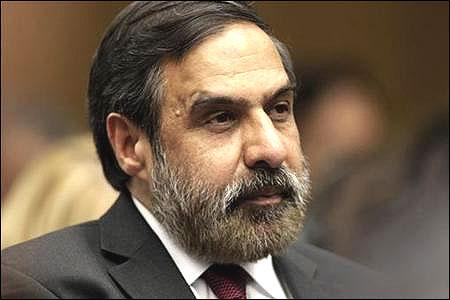
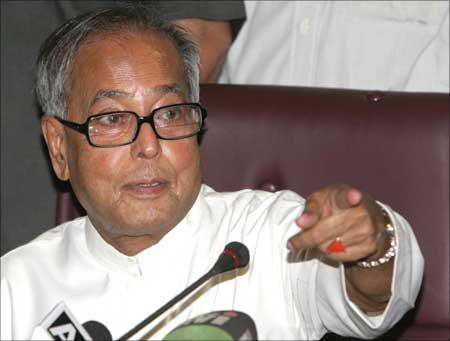
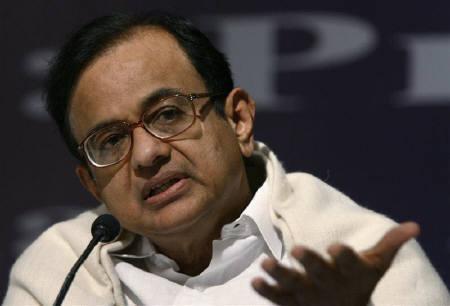
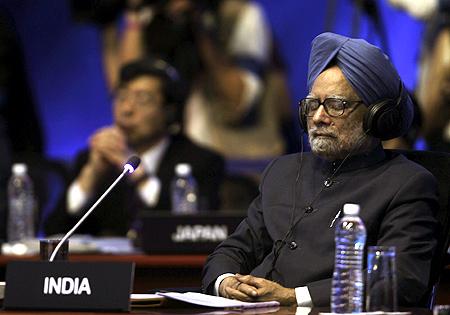
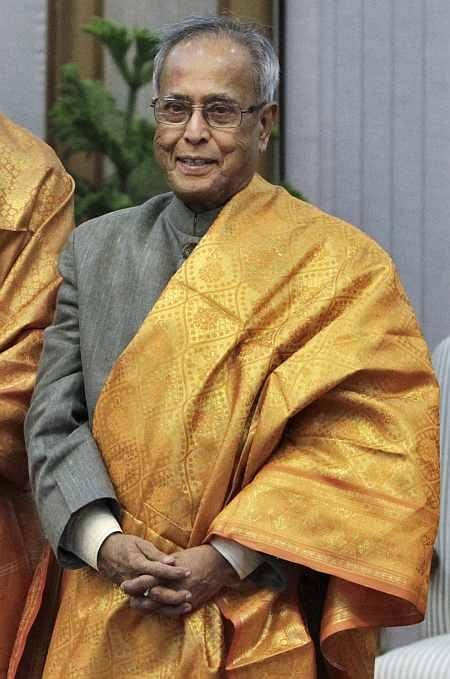
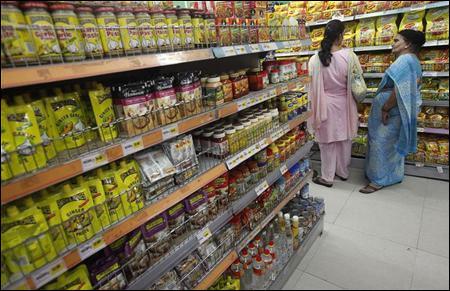
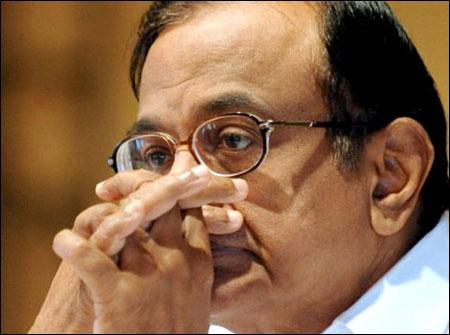
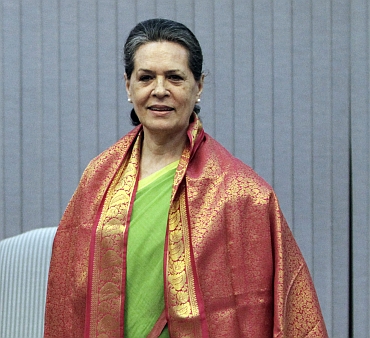
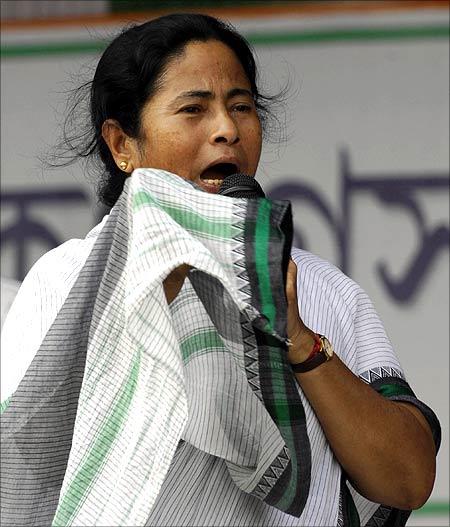
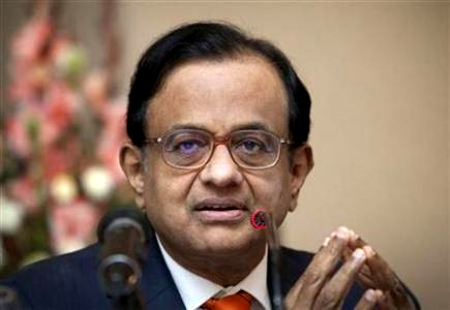

article